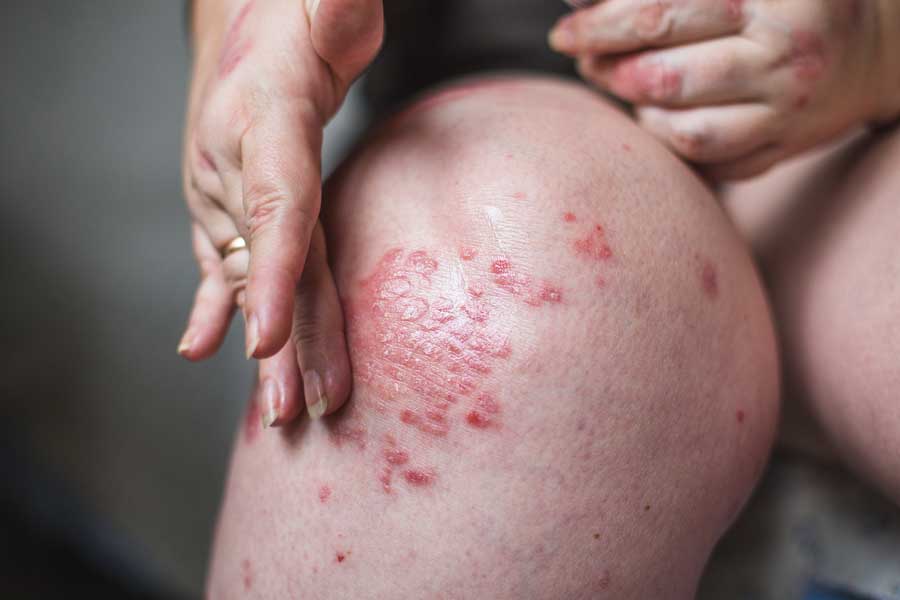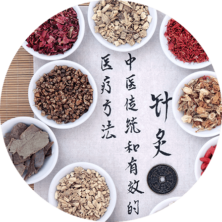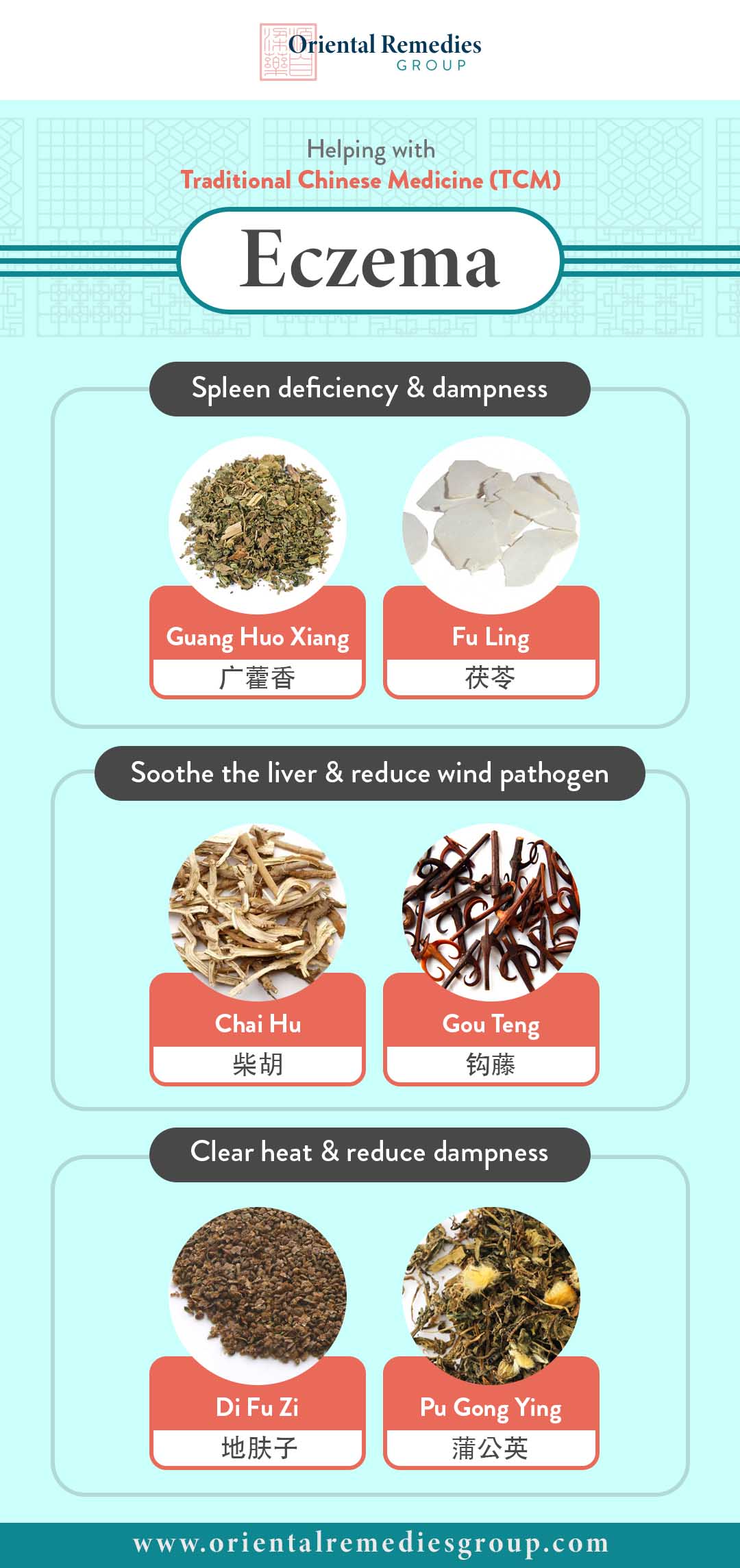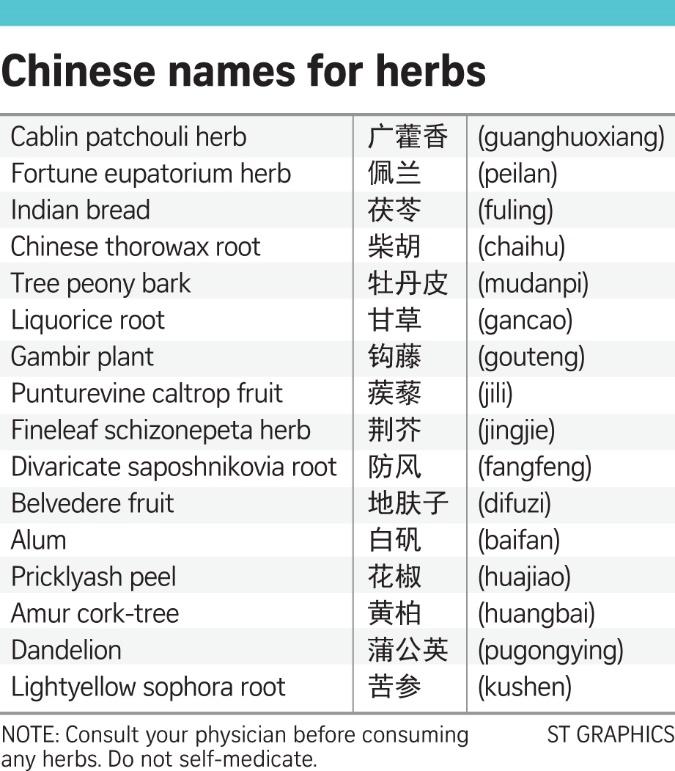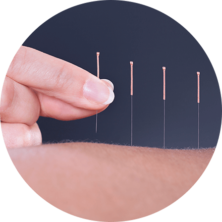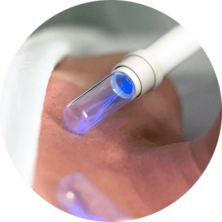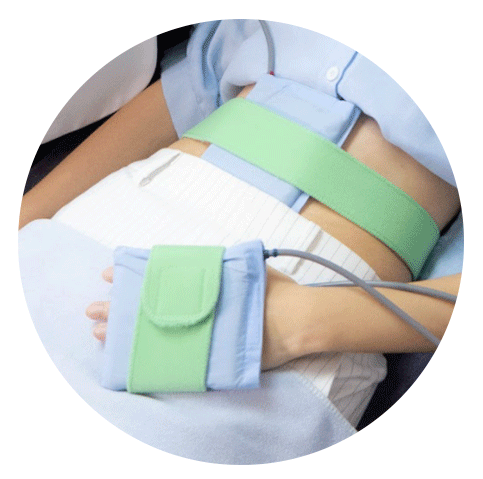Eczema is one of the most common skin conditions. In Singapore, the prevalence of eczema is one of the highest in the world with 1 in 10 adults known to have eczema [1]. As for eczema among children, research done locally found a higher rate of 2 in 10 children [2]. The impact of eczema on an individual is not only limited to one’s physical health, such as skin discomfort and pain but can also affect one’s mental and emotional health. Daily battles with the condition can be traumatic and many eczema patients struggle with self-esteem issues.
Over at Oriental Remedies Group (ORG), we have helped many eczema and Topical Steroid Withdrawal patients manage their condition. We strive to help patients manage their eczema better and improve their quality of life to #BeTheBestYouCanBe. In this article, we help you understand the causes of eczema and share some treatment options that can help alleviate symptoms and reduce flare-ups.
What is Eczema?
Eczema refers to a group of conditions that causes inflammation and irritation of the skin. There are several different kinds of eczema, the most common one is known as Atopic Dermatitis. In mild cases of eczema, the skin will be dry and sensitive. In more severe cases, the skin will itch intensely and flaking occurs. Oozing, crusting, bleeding and infections can also occur [3].
Eczema is known to occur due to an overactive immune system. This results in abnormal responses to internal and external triggers. Internal triggers include poor liver function, high-stress levels and adrenal glands imbalances. External triggers include environmental factors (dust, weather, exposure to water, use of cosmetics etc.) and diet (high inflammatory foods, allergy-causing foods).
It is important for eczema sufferers to identify and avoid allergens as they can cause or worsen eczema flare-ups. Some common examples of allergens include dairy products, nuts, wheat, shellfish, foods high in chemical additives and alcohol. It is also important to note that causes of eczema flare-ups are different for each individual, and similarly so for the intensity of the flare-ups.
More recently, the importance of gut health and the relationship between poor gut health and skin issues is increasingly gaining public attention. Our gut contains trillions of strains of bacteria and microbes, called the gut microbiome. The gut microbiome helps maintain balance in our body systems. However, when there is dysregulation in the gut microbiome such as in the case of a leaky gut, skin issues will arise. Research has shown a link between leaky gut and Atopic Dermatitis [4][5].
“There seem to be three major reasons why patients seek alternative medicine for atopic dermatitis:
First, we simply don’t yet have a cure for this disease.
Second, we can’t yet clearly explain why this disease occurs. While doctors try hard to describe factors that play a role in atopic dermatitis, such as cytokines and inflammatory cells, we still can’t pinpoint the root of the disease.
Third, the outcomes of conventional atopic dermatitis treatments are not always consistent, and sometimes they are perceived as being unsafe.”
— Peter Lio, M.D
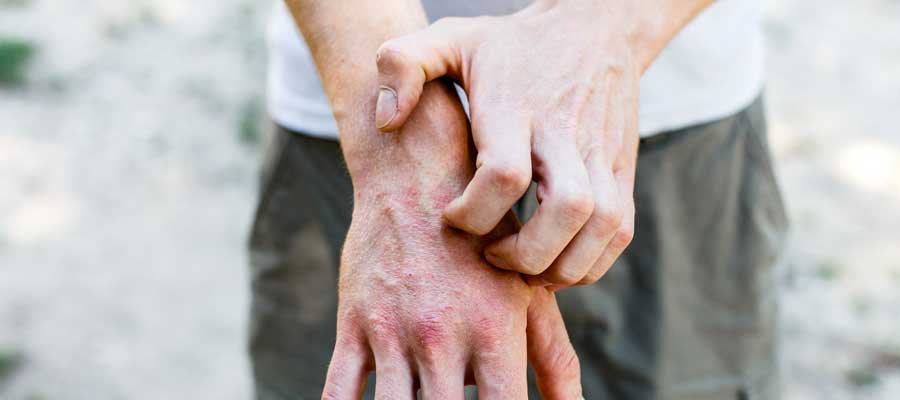
What is Topical Steroid Withdrawal, Topical Steroid Addiction and Red Skin Syndrome?
Topical corticosteroids is one of the most widely and inexpensive drugs used in dermatology to manage eczema. They work by reducing inflammation in the body and are like the corticosteroids made biologically by the adrenal glands. Topical Steroid Withdrawal (TSW) is a term used to refer to symptoms that arise in the days and weeks after an individual stops topical steroid usage. The symptoms include but are not limited to more pronounced burning, stinging or painful skin, a “red sleeve” pattern on the arms and legs that may be accompanied by swelling, and new areas of eczema that have never appeared before. It has been suggested that topical steroid withdrawal is associated with the use of medium to high potency topical and/or oral steroids, but there have been exceptions to this as well. Given that topical steroid withdrawal is still a relatively new area, much more research is still underway. [6]
For individuals undergoing topical steroid withdrawal, it can be unbearably exhausting on many levels – physical, emotional, social and financial. Instances such as having to be homebound and in isolation be it for months or years are very real struggles. It is not an easy journey. With social support and the right treatments to rebuild the body’s system, individuals undergoing topical steroid withdrawal can definitely be better supported in their journey of recovery.
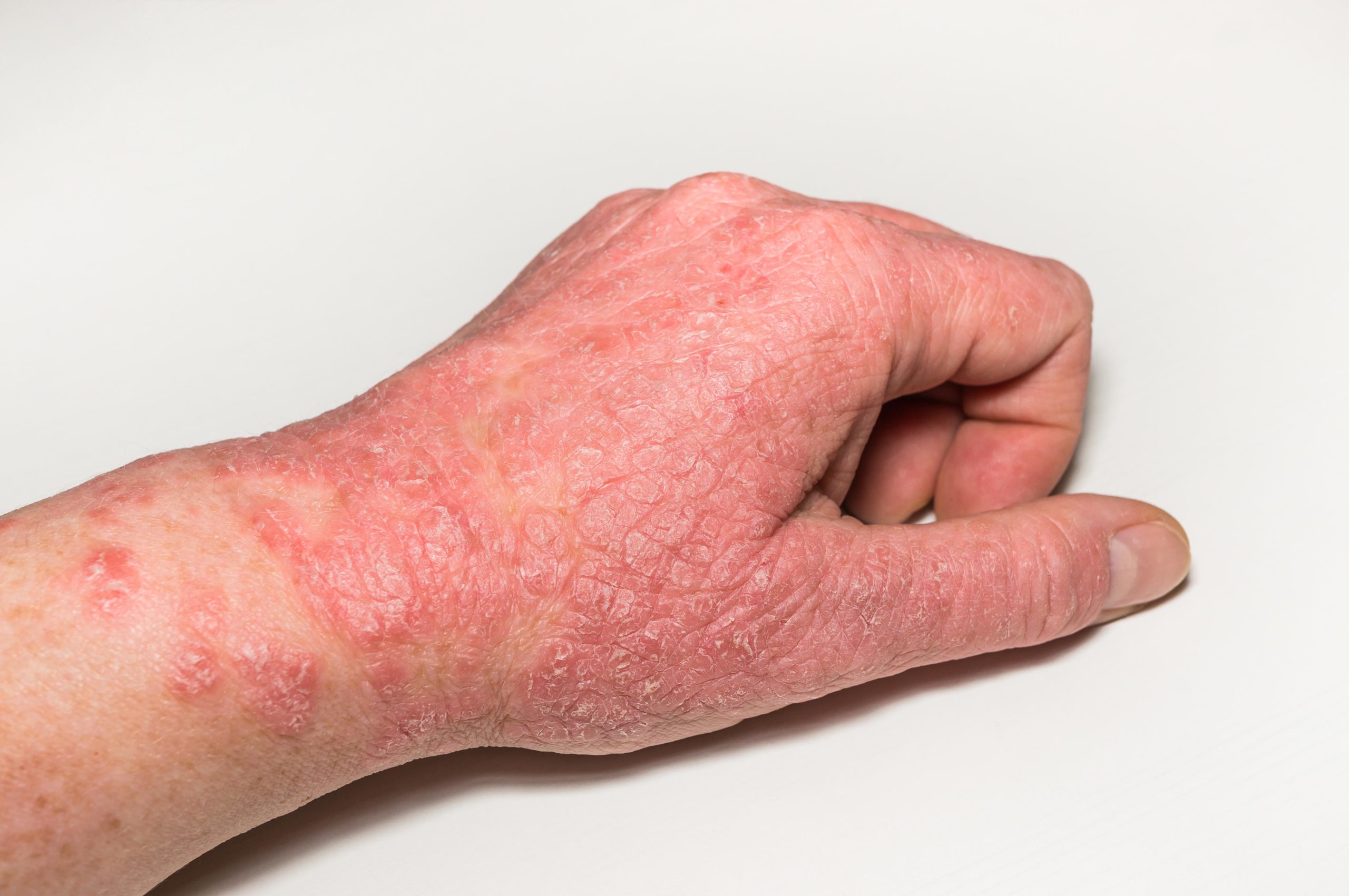
Besides Topical Steroid Withdrawal (TSW), Topical Steroid Addiction (TSA) and Red Skin Syndrome (RSS) are also two other syndromes that patients experience. While these terms are sometimes used exchangeably, there are differences between them.
TSA refers to the origin of TSW, by which the body develops tolerance to topical corticosteroids, and as such, requires a higher dosage of the drug in order for one’s eczema condition to achieve the same effect that is initially achieved by a lower dosage. For TSA, periods of withdrawal from topical corticosteroids will cause a rebound of eczema symptoms. Other symptoms of TSA include redness in areas where the drug is not being applied as well as intense itching, burning and stinging [7] [8].
RSS on the other hand is a symptom of TSW and specifically refers to capillaries on the skin widening up after being artificially constricted by topical steroids. It can be accompanied by body redness or flushing, as well as painful burning and stinging sensations [7].
The root cause of eczema in Traditional Chinese Medicine
According to the Traditional Chinese Medicine (TCM) view, eczema is commonly caused by deficiencies in the organs of Liver, Spleen and Kidney combined with pathogenic factors of wind (风邪), heat (暑邪) and dampness (湿邪).
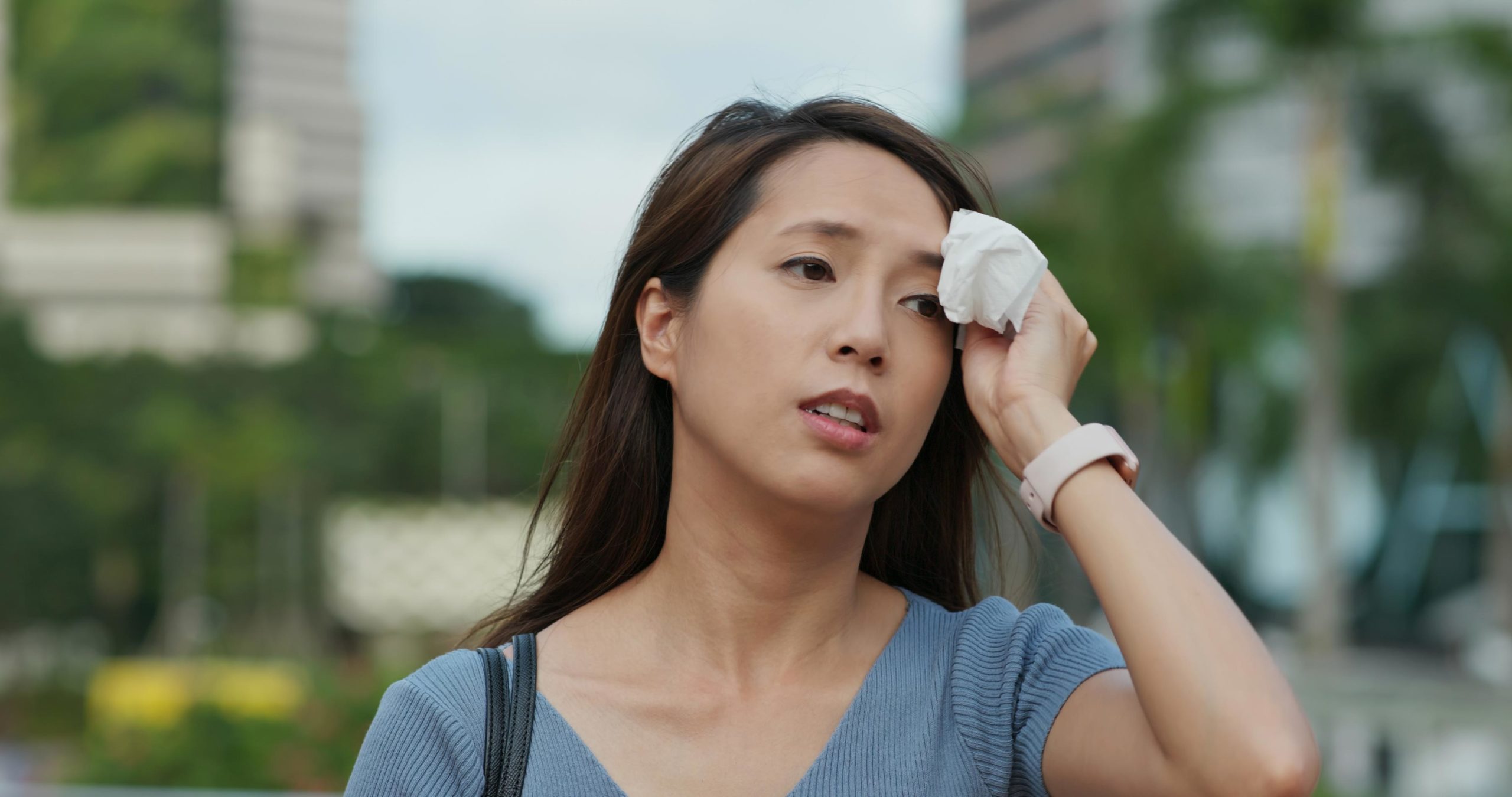
1) Pathogenic Factor – Wind (风邪)
In TCM, it is explained that illnesses that stem from pathogenic factors will reflect similar characteristics. We can all agree that wind has the characteristics of being formless and fast-moving. In eczema, this is similarly reflected in the sporadic occurrences of flare-ups over different parts of the body. Moreover, if on top of eczema, one also has Allergic Rhinitis or pollen allergies (with symptoms reflecting wind characteristics), wind is even more likely a cause for one’s eczema.
The pathogenic factor of wind is also related to the Liver, which is linked to stress and emotional regulation. As such during periods of stress and/or menstrual cycles (where hormonal changes affect emotional regulation), individuals tend to observe eczema flare-ups.
2) Pathogenic Factor – Dampness (湿邪)
Externally, dampness can be induced by factors such as high humidity levels – a climate that Singaporeans live in all year round. To further understand the pathogenic factor dampness, we have to first understand the function of the Spleen. According to TCM, the Spleen is responsible for converting the food one eats into useful substances such as Blood and Qi (a vital energy force that flows through the body) that nourishes one’s body. However, this function of the Spleen is weakened by factors such as an imbalanced diet, consuming excessively cold/cooling foods and excessive worrying. Instead of converting nutrients from one’s food into Qi and Blood, they are now being converted into internal dampness.
The signs of a weakened Spleen with internal dampness are lethargy, heavy limbs, brain fog, food comas, sticky or loose stools – heavy and sticky qualities that are characteristic of dampness. In eczema patients, dampness can manifest as swelling and pus-filled blisters that appear on skin creases which would take a long time to heal.
3) Pathogenic Factor – Heat (暑邪)
Externally, exposure to high temperatures can result in the pathogenic factor of heat entering one’s body. There is also a relationship between pathogenic factors whereby internal dampness will generate internal heat when it is accumulated in the body over a prolonged period of time. The signs of internal heat are presented as bad breath, constant feelings of thirst, discomfort with heat, sweating, yellow urine and constipation. For eczema patients, they may experience symptoms like red and dark rashes, cracked skin, flaking skin, the sensation of burning and blisters which may or may not be filled with pus.
4) Organ deficiencies
In TCM, the Liver and Kidney are also viewed as having important functions beyond what one would conventionally assume. The Liver is seen as the storehouse of our Blood and for the Kidney, the source of Essence in one’s body. Factors such as insufficient sleep, poor sleep quality and high-stress levels weaken the organs, which in turn deplete one’s Blood and Essence. This can further exacerbate one’s eczema such as leading to more skin inflammation, itch, dryness and/or darkening.
It is important to note that everybody’s body constitution differs, causes of eczema can vary as well. Hence, each individual would require different sets of treatments to see improvements. It is best to consult a licensed physician for a better understanding of your eczema condition.
How do we help eczema patients here at Oriental Remedies Group (ORG)?
Over here at ORG, we offer effective treatments that combine TCM with technology-enhanced therapy to help our patients feel better faster and improve their quality of life so that they can be the best version of themselves!
Treatments for Eczema and Topical Steroid Withdrawal (TSW)/TSA/RSS
Herbal Medication & Dietary Changes
Herbal Medications form a vital part of TCM and can be helpful in managing eczema, it addresses the root cause of your eczema – imbalances and deficiencies in your body. As previously mentioned, while one’s condition is being medically classified as “eczema”, body constitution will differ across individuals. Our experienced physicians will examine your body condition and daily habits to get to the root of your eczema and disharmony in the body.
For individuals undergoing TSW/TSA/RSS, herbs are similarly used to rebuild one’s body system and address the underlying imbalances causing eczema. Herbs will also be used to alleviate some of the symptoms like dry skin and itching.
For example, if the root cause of one’s eczema is related to the Liver and wind, Chai Hu (柴胡) or Gou Teng (钩藤) may be prescribed. Specific to eczema issues, Fang Feng (防风) or Bai Ji Li (白蒺藜) can also be added on to dispel wind.
In cases caused by Spleen deficiency and dampness, Guang Huo Xiang ( 广藿香) or Fu Ling (茯苓) can be prescribed. For eczema related to heat and dampness, Di Fu Zi (地肤子) and Pu Gong Ying (蒲公英) may be prescribed.
Lastly, if the eczema rashes appear red and have a burning sensation, Tu Fu Ling (土茯苓) or Jin Yin Hua (金银花) can be prescribed to dissipate heat and fire hence, calming down the inflammation.
Source: Straits Times
Besides herbal medication, dietary changes and supplements can be consumed to alleviate and reduce the symptoms of leaky gut as well as to correct it. For example, probiotics help to encourage the growth of healthy gut microbiomes, contributing to a healthier gut.
Recent research suggests that Chinese herbal medicine can remodel the gut microbiota. Though the research was for diabetes, it opens up new avenues for further research on eczema and beyond. This review presents the recent progress of Chinese herbs, herbal extracts, and herbal compound preparations through regulating the gut microbiota and summarizes the main mechanisms involved, namely, anti-inflammatory and antioxidative effects, protecting the intestinal barrier and inhibiting lipotoxicity.
Acupuncture
Fine needles are inserted into specific points (known as acupuncture points) on the skin to stimulate better flow of Qi through the meridian channels and correct the imbalances of various organs.
There has been research demonstrating the benefits of acupuncture for eczema. Some of these benefits include reducing itch, decreasing inflammation, promoting healthier stress response and strengthening the immune system [7] [8].
Electro-Lymphatic Therapy (ELT)
Electro-Lymphatic Therapy (ELT) is a gentle and non-invasive method that helps to stimulate proper flow and drainage of the lymphatic system. The lymphatic system is a complex network of glands, vessels, and nodes containing fluids. It is closely tied to the immune system and plays a critical role in the body’s detoxification process. ORG has provided ELT to many individuals with eczema, of which we have seen improvements in their skin condition and overall well-being [9]!
Main benefits eczema patients experience:
1. Reduction in inflammation
2. Less itch and redness
3. skin recovery process
ELT can be likened to a manual lymphatic drainage massage or Tuina but is 8-10% more effective and pain-free. This is possible as ELT is performed using an FDA-registered wellness device that is able to reach and decongest stimulate lymph nodes and vessels found in the deeper layers of the skin.
Cell Pro Therapy
Cell Pro Therapy is a non-invasive therapy that uses a made-in-Japan wellness device to directly supply the body with a high density of negative ions. Negative ions exhibit antioxidant properties and can neutralize harmful free radicals in the body to support overall wellness.
Main benefits eczema patients experience:
1. Manage inflammation
2. Relieve inflammation-related symptoms like redness
3. Improve sleep quality
Can TCM help children with eczema?
Yes!
When treating children with eczema, herbal medication, as well as pediatric massage, are typically used. As previously understood, herbal medication targets the child’s body constitution and balances it, in turn reducing eczema flare-ups. Rest assured that the prescribed dosage of herbal medication would be less than that of adult counterparts.
Pediatric massage is commonly used to balance the child’s body constitution. Through the use of different hand techniques, the massage improves the flow of Qi and Blood through the meridian channels thus restoring balance. As the treatment is non-invasive and very gentle on the skin, many parents choose this form of treatment for their young children. In fact, pediatric massage is a treatment method that has been recently gaining popularity even amongst non-eczema patients!
Research shows TCM herbs to be effective for young eczema patients
Between 2006 and 2008, Dr Julia Wisniewski, a researcher at Mount Sinai Hospital in New York, treated 14 children with persistent eczema with TCM therapies. Besides being given herbal tea twice a day, the children soaked in a herbal bath daily, applied a herbal cream to their skin and underwent acupuncture treatments. Improvements were seen as early as the three-month mark, and six months on, red scaly extremities appeared normal. Dr Wisniewski has emphasized the need for alternative treatments for eczema, as many patients with severe allergies continue to have flare-ups as long as a decade after conventional therapy with steroids and immune-suppressing agents [10].
An earlier study had similar convincing results. In 1992, 37 children who had not responded to conventional treatments were treated with herbal medicine over the course of a year. After the year, 18 children showed at least a 90 per cent reduction in eczema flare-ups and another five showed smaller degrees of improvement.
Hear from our patients!
Over at ORG, we have treated many patients who have entered our doors with eczema issues. We are always heartened to witness their improvements, both in their skin condition and quality of life! Read their story from Google and Facebook below.



Your healing is the most important
In Oriental Remedies Group, we have more than 10 certified bi-lingual TCM Physicians. Each of them has been trained in both Nanyang Technological University (Singapore) and China for a minimum of 5-8 years, in both Biomedical Science and TCM before being certified to practice in Singapore. Most of our Senior Physicians work with many eczema and topical steroid withdrawal patients, and are constantly upgrading their knowledge to serve you better.
Eczema and topical steroid withdrawal can drastically affect one’s quality of life. It is therefore important to address the conditions promptly and appropriately so that they do not worsen or be prolonged. By combining Traditional Chinese Medicine therapies and technology-enhanced therapies, we strive to provide the best care possible in your journey with us.
Please contact us at +65 8087 0486 for a personalized consultation.
This article is written by Physician Leong Weizhen, with contribution from wellness blogger, Beatrice Liu and Physiotherapist-to-be, Chloe Lee.
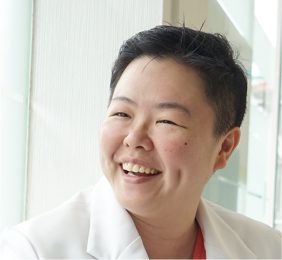
Note: All words in Italics refer to the TCM organ system and not the anatomical organ referenced in western medicine.
Disclaimer:
The information on this page is for information and educational purposes only. Such medical information may relate to disease, injury, drugs and other treatments, medical devices and/or health products. Medical information does not amount to advice, and if advice is needed an appropriate professional help should be sought. The disclaimer asserts that no warranties or representations are given in respect of the medical information, and that the website operator should not be held liable if a user suffers any injury or loss after relying upon the medical information.
All wellness assessments and technology-enhanced therapies using wellness device(s) are intended for use only for general well-being purposes or to encourage or maintain a healthy lifestyle, and it is not intended to be used for any medical purposes (such as detection, diagnosis, monitoring, management or treatment of any medical condition or disease). Any health-related information provided by these devices should not be treated as a medical advice. Please consult a physician for any medical advice required.
References:
[1] Baker, J. A. (2018). Tackling that itch: Demand for help with skin issues on the rise in Singapore. Channel News Asia. Retrieved from https://www.channelnewsasia.com/ singapore/skin-issues-eczema-increase-singapore-rashes-791111
[2] Lai, L. (2018). Half of eczema sufferers in Singapore have condition for life, survey finds. The Straits Times
[3] National Eczema Association. (2021). What is Eczema? Retrieved from https://nationaleczema.org/eczema/
[4] National Eczema Association. (2021). Leaky Gut and Atopic Dermatitis: Does the Concept Hold Water or Is It Full of Holes? Retrieved from https://nationaleczema.org/leaky-gut/
[5] Lawrenson, A. (2020). PSA: Healing Your Gut With Probiotics Can Give You Better Skin and Less Breakouts. Retrieved from https://www.byrdie.com/gut-skin-axis- 4799925#how-about-topical-probiotics
[6] Ballard, A. (2021). TSW: What the Eczema Community Needs to Know, Now. Retrieved from https://nationaleczema.org/tsw-need-to-know/
[7] ITSAN. (2021). What is TSW Syndrome? Retrieved from https://www.itsan.org/what -is-tsw-syndrome/
[8] Healthline. (2021). What is Red Skin Syndrome (RSS), and How is it Treated? Retrieved from https://www.healthline.com/health/red-skin-syndrome
[9] Akpinar, R., & Karatay, S. (2018). Positive Effects of Acupuncture on Dermatitis. Retrieved from https://clinmedjournals.org/articles/ijam/international -journal-of-allergy-medications-ijam-4-030.php?jid=ijam
[10] National Eczema Association. (2021). Get the Facts: Acupuncture. Retrieved from https://nationaleczema.org/get-the-facts-acupuncture/
[11] Marie. (2018). What are the benefits of Electric Lymphatic Drainage? Retrieved from https://eastwesthealingsolutions.com/lymphatic-drainage-palm-harbor/
[12] Liano, C. (2009). Can Chinese Herbs Relieved Eczema? Retrieved from https://www.webmd.com/skin-problems-and- treatments/eczema/news/20090317/can-chinese-herbs-relieve-eczema#1
[13] 13 Liu, B. (2020). Negative Ions and It’s Benefits. What Is It and Does It Work? Retrieved from https://eatprayflying.com/negative-ions-and-its-health-benefits -what-is-it-and-how-does-it-work/
[14] Cheng, N. (2020). Itch No More: Causes and Remedies for Eczema in Young Children. Retrieved from https://eatprayflying.com/itch-no-more-causes-and- remedies-for-eczema-in-young-children/

